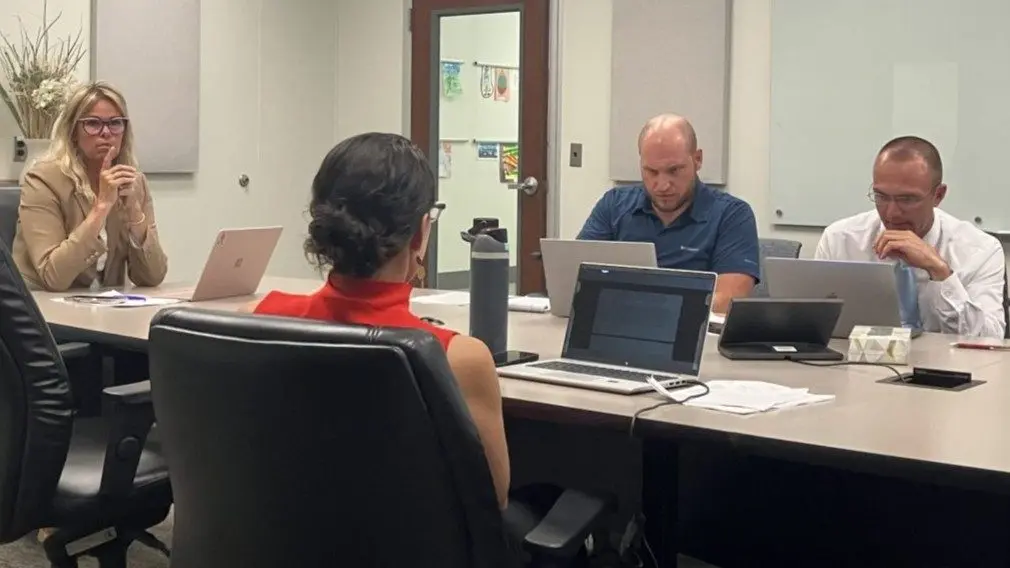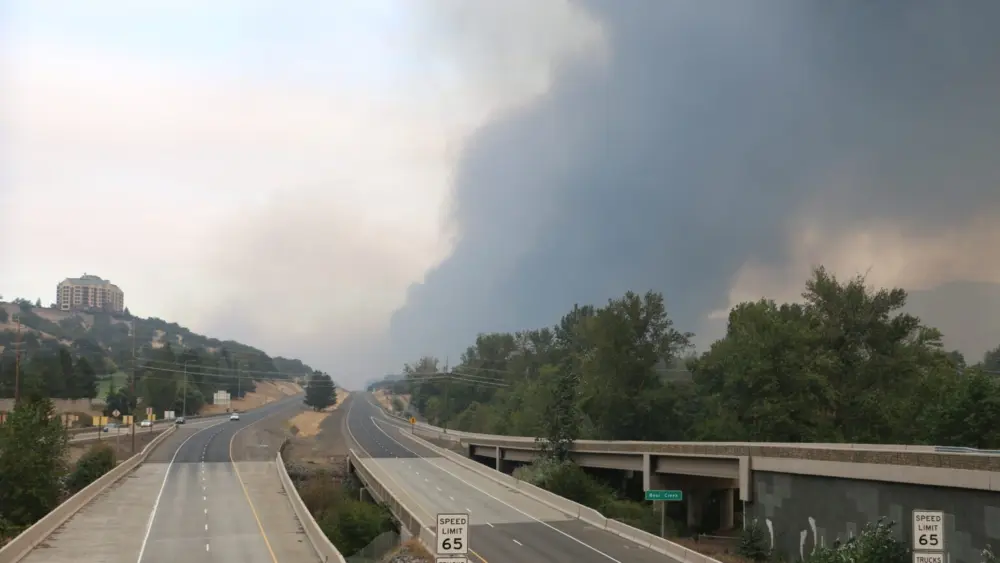Originally posted on IdahoEdNews.org on August 5, 2025
Updated, 2:21 p.m., to correct a reference to the length of Salmon’s 20-year bond.
BOISE, ID – A state panel Monday approved $30 million in distributions from a school facilities loan fund, which lawmakers this year made easier to access after it sat largely dormant for nearly two decades.
Five districts likely will receive loans from the Public School Facilities Cooperative Fund. But two of these districts will first have to ask voters for bonds before they receive the money, thanks to a provision in House Bill 338 that added an extra hurdle to qualifying.
The Legislature this year unanimously approved HB 338, which was designed to remove barriers that had deterred districts from applying for the program since it was created in 2006. Previously, districts had to submit to state supervision for the duration of a construction project. Now that’s only required for projects exceeding $5 million.
The bill also increased the fund from $25.5 million to $50.5 million.
A panel charged with evaluating applications — which includes state superintendent Debbie Critchfield, two lawmakers and a handful of school architects and contractors, among others — unanimously approved all five projects included in the first round of applicants.
The $30 million approved Monday will help pay for new buildings in Boundary County and Salmon. It will also fund facilities upgrades, including ventilation improvements in a CTE building, parking lots and HVAC systems in the Filer, Payette and Camas school districts.
The funding will go to:
- Boundary County – $13.2 million – to build a new elementary school. The district is also using about $5 million from the School Modernization Facilities Fund (House Bill 521).
- Salmon – $9 million – to build a bus shop along with high school and parking lot reservations. The funding will supplement a broader project to build a new K-8 facility, largely funded by a $20 million bond.
- Filer – $3.3 million – to upgrade a CTE welding facility and renovate a parking lot.
- Payette – $2.1 million – to replace a fire alarm system and remove asbestos.
- Camas – $1.8 million – to upgrade walkways, HVAC and a locker room.
The panel quickly approved the applications, with one exception.
Critchfield and Rep. Rod Furniss, one of the co-sponsors of HB 338, initially balked at Filer’s request to upgrade ventilation systems in a CTE building that hosts welding classes. The school district’s application noted that the money would help “expand” the CTE facility along with upgrading an unsafe ventilation system.
Critchfield said the cooperative fund is meant to support upgrades that address safety problems, not expansions. And expanding a CTE facility might be better funded by a separate state program, like Career Ready Students.
“I just want to make sure that we’ve got the right money going in the right directions,” she said.
During Monday’s meeting, the panel reached Filer’s superintendent and construction contractor by phone. Michael Arrington — the district’s contractor and a member of the cooperative fund panel, who abstained from the Filer vote — said the current facility is “cluttered,” which has prompted safety violations from inspectors. This explanation swayed the panel.
“It sounds like a safety issue to me,” said Furniss, R-Rigby. “They need to have more space to be more safe.”
Districts must repay the loans over 20 years. But annual payments are forgiven for districts that have existing bonds. Salmon, for instance, won’t have to repay its loan for the duration of the 20-year, $20 million bond that voters approved last year.
Not every district qualifies for cooperative fund. Eligible districts must meet one of these three criteria:
- The district failed to pass a bond or plant facility levy to upgrade unsafe facilities within the last two years,
- The administrator of the state’s Division of Occupational and Professional Licenses determined that the district has failed to address unsafe facilities, or
- The district passed a bond or plant facility levy, but proceeds fell short of the money needed to make upgrades to unsafe facilities.
Boundary County, Camas and Filer had bond elections that recently failed while Salmon and Payette qualified under the third option.
But there’s a catch for two of the applicants. A provision in HB 338 required that districts which failed to pass a bond or levy and are now asking for less than that amount from the cooperative fund must first hold another bond election. Filer and Camas — which asked for $52 million and $9 million bonds, respectively — fall into this category.
Before receiving the state money, the districts will have to ask voters in November to approve bonds at the amount they requested from the cooperative fund. And they’ll only receive the state loans if the bonds fail.
Furniss, who co-sponsored the bill with Rep. Soñia Galaviz, D-Boise, said this provision wasn’t their idea; it came from House Speaker Mike Moyle, R-Star. And Furniss didn’t mince words about his aversion to the rule, which he hopes to repeal next legislative session.
“The message to the community is ‘We’re going to put out a bond, we want you to fail it (because) the state’s going to pay for it, anyway,’” he said. “It makes no sense.”
In the meantime, the cooperative fund still has about $20 million remaining for future applicants. Critchfield and other Education department officials discussed launching a second application round in the coming weeks.
For more information on how districts can apply, click here.





